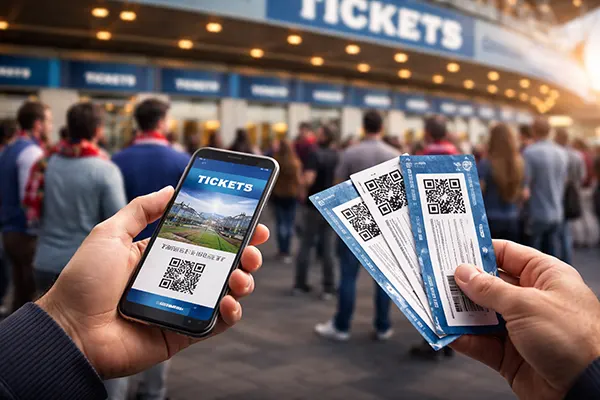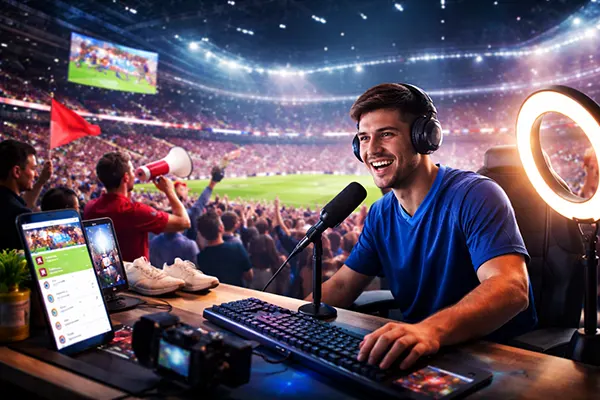
Micro-Influencers in Niche Sports: The Hidden Potential for Modern Marketing
In 2025, marketing in the sports industry is rapidly evolving, with brands shifting their attention from celebrities to smaller yet highly trusted figures — micro-influencers. These are athletes and enthusiasts with small but devoted audiences who connect deeply with their followers. Their authenticity and close relationships allow them to shape purchasing decisions in ways that large-scale campaigns cannot achieve.
The Growing Influence of Niche Sports Athletes
Niche sports, from climbing and paddleboarding to parkour and powerlifting, have seen a surge of interest over the past few years. Social media has provided athletes in these areas with a voice and visibility previously limited to mainstream disciplines. As a result, micro-influencers within these communities have become key intermediaries between brands and audiences seeking credible recommendations.
Unlike traditional sports stars, these athletes are often part of the same online communities as their followers. They share training routines, personal experiences, and challenges, creating an authentic connection. Their influence stems from trust, not fame, which is precisely why brands are now turning to them for collaborations that feel genuine rather than forced.
Brands investing in niche sports marketing benefit from higher engagement rates and stronger brand loyalty. Audiences in these smaller niches tend to value sincerity over spectacle, making micro-influencers the perfect ambassadors for brands aiming to build credibility within specific target groups.
How Brands Are Leveraging This Trend
Many companies have recognised that micro-influencers in niche sports deliver measurable results through authentic engagement. For instance, fitness apparel and nutrition brands are partnering with athletes who post honest reviews of products they genuinely use. This type of endorsement resonates with followers because it reflects real experiences, not paid promotion.
Another growing strategy is local collaboration. Instead of spending vast budgets on international stars, brands now sponsor regional competitions or training events led by micro-influencers. These activations foster community and position the brand as part of the local sports ecosystem. In turn, they generate sustainable visibility rooted in trust and relatability.
Data also confirms this shift. According to marketing studies from 2024–2025, campaigns featuring micro-influencers in niche sports achieve up to 60% higher engagement rates than those led by traditional influencers. The combination of relatability, cost-efficiency, and audience trust makes them one of the most effective marketing channels today.
The Human Connection and Audience Trust
The success of micro-influencers in niche sports is driven primarily by the strength of their personal relationships with followers. Their audiences see them as peers rather than distant celebrities. This emotional connection turns recommendations into meaningful endorsements that motivate real action.
Trust plays a crucial role here. Because micro-influencers are transparent about their journeys — both achievements and failures — they build long-term credibility. This openness creates a perception of honesty, and their followers respond with genuine loyalty. The marketing value lies not in the number of followers, but in the depth of influence within a small, dedicated community.
Furthermore, niche athletes often advocate for values that resonate with their audiences, such as discipline, mental health, sustainability, or fair play. Brands aligning with these authentic values can strengthen their image and connect with new demographics that were previously difficult to reach.
Case Studies of Successful Collaborations
In recent years, several successful collaborations between brands and niche athletes have set new standards for influencer marketing. For example, a Scandinavian sportswear company partnered with regional crossfit trainers to promote eco-friendly gym apparel. Their authentic stories of using the products in real training sessions generated high engagement and a measurable rise in sales.
Similarly, cycling and endurance equipment brands have begun collaborating with ultra-distance riders who document their journeys in detail. These narratives, built on real effort and emotion, create a strong emotional connection with the audience. Such campaigns not only boost sales but also enhance the perceived integrity of the brand.
These examples underline that success in modern sports marketing depends on finding ambassadors who share the brand’s values and can communicate them naturally. The future of brand collaboration lies in smaller, authentic partnerships that emphasise shared purpose rather than reach alone.

Future Prospects for Micro-Influencer Marketing
Looking ahead, the role of micro-influencers in niche sports is expected to grow even further. As audiences become more sceptical of traditional advertising, the demand for authentic voices will only increase. Brands that adapt to this reality will gain a significant competitive advantage.
Emerging technologies such as AI-driven analytics are also helping marketers identify suitable micro-influencers based on engagement quality, sentiment analysis, and local trends. This data-driven approach enables brands to choose partners whose audiences align perfectly with their goals, leading to more effective and measurable results.
In 2025 and beyond, micro-influencers are not just marketing tools — they are partners in storytelling. They help brands speak the language of their audiences, bridging the gap between corporate image and community identity. Their value lies in authenticity, trust, and the power of genuine human connection.
Why Authenticity Will Define the Next Era
As marketing continues to evolve, authenticity will remain the defining factor for success. Audiences now value honesty, transparency, and expertise over glamour. Micro-influencers who demonstrate these qualities will continue to lead the transformation of digital marketing in niche sports.
For brands, this means focusing less on numbers and more on values. A single trusted voice within a small community can be far more persuasive than a famous athlete with millions of followers. This paradigm shift encourages brands to prioritise substance over scale, trust over trend.
Ultimately, micro-influencer marketing represents a return to the core of communication — meaningful connections. In niche sports, where passion drives engagement, these individuals embody the bridge between authenticity and ambition, shaping the future of sports marketing in the most human way possible.
Last posts
-
 Communicating Ticket Prices and Rules: How...
Communicating Ticket Prices and Rules: How...
Clear communication about ticket prices and conditions is …
-
 Dynamic ticket pricing without losing fan ...
Dynamic ticket pricing without losing fan ...
Dynamic pricing is now common across sport and …
-
 Creator Partnership Economics in Sport: Ho...
Creator Partnership Economics in Sport: Ho...
Creator partnerships have become a core line item …
